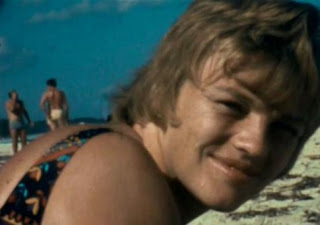Stories We Tell
**** out of ****
Directed by: Sarah Polley
Running time: 108 minutes
When someone tells a story they insist is true,
there is always the opportunity for slivers of fiction to creep into that
retelling. Since it is so hard to determine the validity of one story over
another, what counts as truth can be highly contested. Even in the framework of
a documentary, the possibility of doubt remains.
One can try to label something as truth based
on their closeness to the person, situation or concept at the centre, but how
can one assess that accuracy over another’s to the same thing? Films like Akira
Kurosawa’s Rashomon and Errol Morris’s
1988 documentary The Thin Blue Line
stirred the pot of linear narrative by having its characters or figures project
different, irreconcilable versions of the same story.
Those tenuous strands that separate fact from
fiction come to the forefront of Stories
We Tell, a stunning cinematic achievement from filmmaker Sarah Polley. It
is an experimental documentary of sorts, as well as a mystery, a family exposé and
a deeply moving look at tangled human relationships, centering around
Polley’s family.
Stories We Tell begins with the interview
subjects – Sarah’s father Michael, an accomplished Anglo-Canadian actor, and her
four siblings, among others – preparing to be filmed by the writer/director. Michael is placed in a recording booth
with two cameras pointed at him. He stands in front a podium with a small stack
of papers lying on it, a biography that Michael wrote and will recite to his
daughter (and to the audience).
Polley asks her family and friends to retell
the stories of their lives in their own words. The focus of these narratives is
Polley’s mother, Diane, a vivacious beauty who died from cancer when Sarah was
11.
According to the actor-turned-director, these
are not interviews but an interrogation. Sarah is keen to discover deeper
truths about her family’s history.
As the story goes, Diane and Michael met in the
theatre. She first saw him play an attractive, outgoing character on stage that
was far from his usual, contained personality and quickly fell for him.
They were opposites who were attracted to each
other: Diane often brimmed with excitement and had a memorably giddy laugh, while
Michael was a private, stolid writer who was too afraid to pursue that craft to
any success. Diane liked to dance to the music that Michael would rather have
listened to in solitude.
As the interviewed family members reconstruct
the past in their own words, her inquisitive subjects try to decipher Polley's motive with making the documentary. They wonder who would care about their family's stories.
The plot thickens when the siblings recall
their whisperings about how Sarah, the youngest member of the Polley clan, was
not Michael’s biological daughter. Each has their opinion on the matter,
although they suggest that she was the result of a fling Diane had had while
starring in a theatrical production in Montreal.
As Polley moves forward to inquire about this
possibility, Stories We Tell becomes an
endlessly intriguing rumour mill. The writer/director sets to fill in the gaps
of her life but is greeted with doubts and discrepancies from those closest to
her.
Among Diane’s potential suitors that the film
hints toward include a lively red-haired actor named Geoff Bowes and Canadian
film producer Harry Culken, a romantic figure with bushy, Einstein hair. Sarah interviews them both and discusses with them about their
ephemeral, fleeting relationship with Diane. She goes from probing the people
in her own family to investigating and making sense of an unexamined truth.
Polley’s interrogation of her family also
becomes an interrogation of the skewed subjectivity of storytelling – and in
that regard, documentary filmmaking. The writer/director includes home movies shot on super-8, presumably by her father. This archival
footage’s legitimacy is tested when some of the filmed material turns out to
feature other actors appearing in the roles of her family members.
The truth is hard to pin down due to the
discrepancies in the storytelling. Memories of Diane and her suggested affair
gain greater complexion, and to an extent become more mysterious, as all of the
stories cannot reconcile with each other.
Stories
We Tell is a big leap forward for Polley even after
her impressive debut, 2007’s Away From
Her. That film also examined the relationship of intimate lives whose
shared memories clash fiercely.
It is significant that many of the people
shadowed in the film are actors, whose job is to reveal deep truths under a
guise of artifice. When Michael makes a heartfelt statement about his late wife
near the end of the film, he admits that he was not acting when he said the proclamation.
This sentence beckons one to ask how much that he has included in his writing
was embellished for artistic purposes.
One could ask the same of Polley, who explores
these intricacies of truth and memory with skilled aplomb but also has the
cunning power as the creative director of the film to alter the audience’s impression
of the story.
Blending real footage with the imagined and the
truth with speculative fictions, these paradoxes of storytelling – both on a
personal level, as well as a creative outlet – make Stories We Tell a film that remains piercingly honest even as its
enigmas threaten to manipulate us, the audience. It is a feat of tender, intelligent filmmaking that’s
not to be missed.







No comments:
Post a Comment